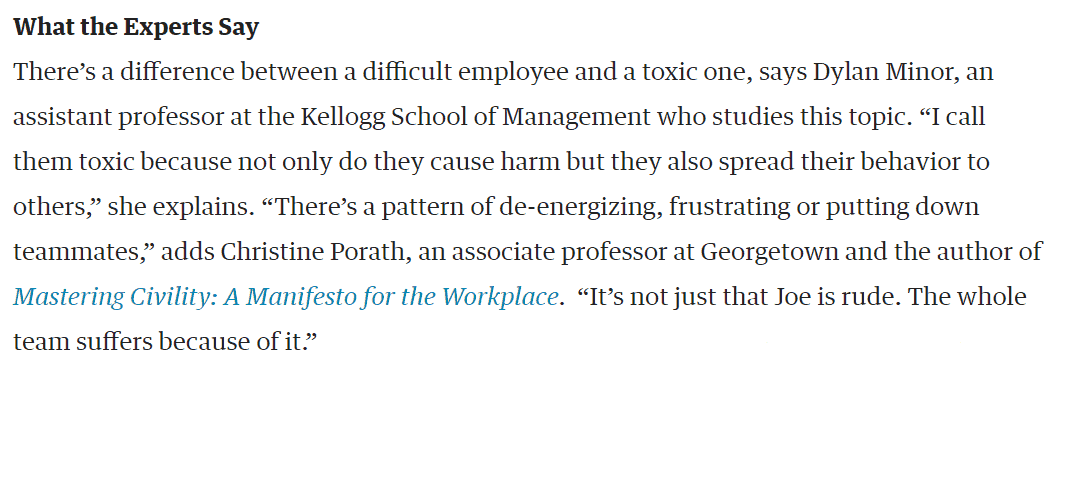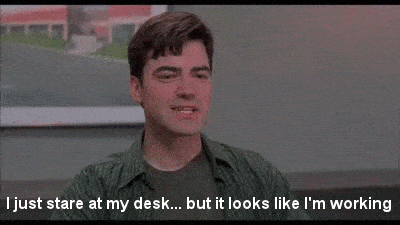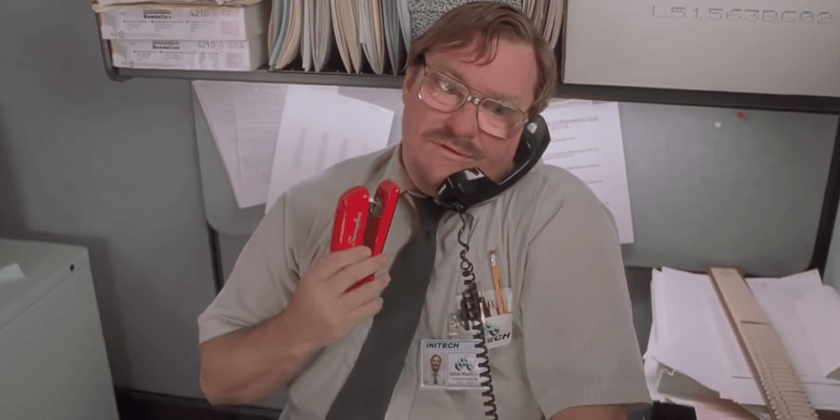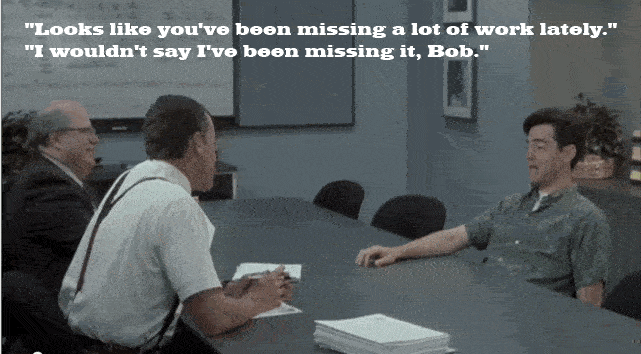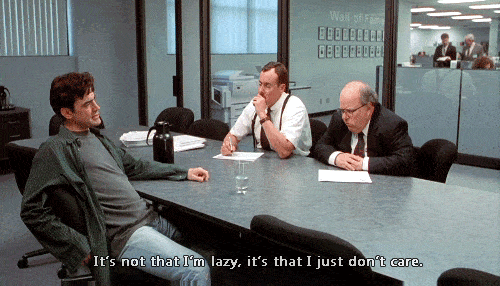Despite all of your efforts to find good employees, hire them, and train them well, there are times when you find out later that some guy is a dud. It’ may be no fault of your own! There are some people that sign on with enthusiasm and experience whom you later find out just don’t have that same fire. We call these folks toxic employees.
Toxic Employees or Difficult Workers?
According to Harvard Business Review, there’s a big difference between someone on your team who is difficult to work with versus a toxic employee. It has to do with how their attitude and behavior effects your team as a whole.
Hints that you may be Dealing with a Toxic Employee
The thing about toxic relationships is that you’re often so deep in them that you don’t realize how or when things went sour. This goes for business relationships as well. There may have been times where you had no doubt that every member on your staff was a hard worker. Sometimes that fades, and you’re not sure what went wrong. You may have one or two toxic employees on your team that drain everyone’s productivity. Below are a few hints that you may be dealing with a toxic employee.
Everyone complains about them
Look for a common denominator. If water cooler talk is often about the same offender, it’s likely that this person is draining the energy of their colleagues. When someone is frequently the topic of conversation, yet no one has anything positive to say, that’s the number one red flag that you have a toxic employee on your hands.
They complain about everyone
It can also go the other way. If you notice that an employee has a lot of complaining to do about the workload or the people that they’re working with, you also may have a toxic employee at your place of business. Complainers always have something negative to say and they never run out of comments to bring down the people around them. In general, if you can’t make this employee happy, they are likely toxic.
“That’s their problem.”
This is a phrase often said by a toxic employee. Toxic employees aren’t concerned with things that don’t directly affect themselves or their workload. They come to work to clock in, meet the bare minimum, and clock out. So if something is effecting someone on a different team, a vendor, or a customer, they can’t care less.
They’re quick to find an easy exit
Spotting a toxic employee isn’t anything like a Where’s Waldo book. The toxic employee is far more obvious because you can find them on their way out the door at any given chance. Boss heading out for an off-premise meeting? This toxic employee suddenly has a doctor’s appointment that they need to get to, STAT. They’re always looking for an opportunity to leave the office early and they’re always looking around to see if the boss is paying attention.
“That’s not my job.”
Here’s another phrase frequently said by the toxic employee. Toxic employees have memorized their job description. If you ask them to do anything that wasn’t outlined in the craigslist ad that led them to you, be prepared for disappointment. This is the hallmark of a toxic employee because it shows that they only look out for themselves. They aren’t concerned ways in which they can help improve the business and they don’t realize that one’s job evolves as necessary. You and I both know that their job, and whether they have one or not, is determined by their employer. Let’s not let them think they have the upper hand.
They lose their temper frequently
This is a toxic employee that is quite scary to be around. They’re quick to anger and often blow their lid with coworkers or customers. The worst type of toxic employees are these guys. They cause your place of business to be a toxic work environment and can cost you big time when your customers complain through negative online reviews. Or worse, if they decide to do business with someone else.
Their work always ends up in someone else’s lap
As a small business owner or manager, one of your primary jobs is to be able to delegate work to your employees. But this guy, the toxic employee, seems to be the king of delegation. Why? Because the work that he’s asked to do somehow always ends up being someone else’s responsibility. Whether they’ve asked someone directly for help that goes a little too far, or you have to shift responsibilities around when they under-perform, they’re having the last word in who does what task.
Ways you Inadvertently Encourage Toxic Employees
I’ve got some bad news for you. Sometimes your management decisions reinforce the negative qualities and habits of your poorest performers. No one wants to hear that they’re rewarding bad behavior, but if you’re doing the following, I have bad news for you. The good news is that you can take note and make changes in your managerial styles after learning how you’re contributing to the problem.
Giving toxic employees less work
You have an employee that can’t keep up with deadlines nor demands on one hand, and a go-getter on the other. The latter somehow manages to crank out project after project. So, when you’re introduced to a very important project with a strict deadline, who are you more likely to give it to? The employee that can’t keep up is still working on their last project. So you give more to the go-getter. Then it happens again and again. The go-getter continues to have far heavier of a workload than the other person on the team, and the person that can’t keep up doesn’t improve.
Sometimes the go-getter is a great employee. Sometimes it’s someone looking for a raise. Other times, the go-getter has a more vested interest in the success of your business because it’s YOU, the business owner, picking up the slack. And we all know that you didn’t go through all of those hiring efforts to be doing the work yourself.
Better schedules for toxic employees
Toxic employees are the types that stroll in several minutes after the expected time before socializing with everyone in the office while they grab their cup of morning joe. They take their time getting started and then drag out their work far longer than necessary. Their Facebook page always seems to be updated, yet you can’t get an update on those TPS reports you’ve asked them to finish.
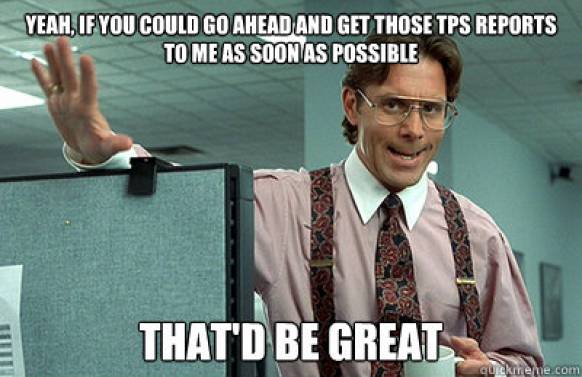 Whether they show up for work on time or not, it seems like they’re they ones determining when and what work will get done. They’re determining their own schedules.
Whether they show up for work on time or not, it seems like they’re they ones determining when and what work will get done. They’re determining their own schedules.
Poor Performers get Easier Customers
You don’t want the guy who can’t deliver to handle your highest paying customers, do you? Nope. You end up giving the easier customers to toxic employees. It’s a safety net so that they won’t mess things up for your business big time.
Are you seeing a theme here yet? There’s more.
Toxic Employees aren’t Placed on Teams or Committees
Toxic employees don’t work well with others. They don’t work well at all! But when they’re expected to share responsibilities with someone else, things go south quickly. The other person gets frustrated with a toxic employee’s work ethic and the lack of balance in the workload. You don’t ask toxic employees to join comittees or teams after you quickly learn that it rarely works out well. You think that being given less opportunities is a punishment for bad behavior, but in fact, it’s the opposite. Toxic employees want to be overlooked. It may sound strange, but hear me out.
Toxic Employees get Ignored
Toxic employees are rewarded for bad behavior through less work, lower expectations and less responsibilities. Ultimately, they get overlooked often because they just don’t show up the same way that your better employees do. Their behavior gets ignored. They get ignored. Seems like a bad fate, doesn’t it? But for the toxic employee, this is the ultimate reward.
Toxic employees are able to continue to meet just below the status quo when they get ignored. They continue to keep the bar low, they continue to have poor performance and low output. And you know what else they continue to do even after all of this?
Toxic Employees Continue to Receive a Paycheck
A paycheck is compensation for a job well done. However, toxic employees aren’t doing the job well. They instead skate by through the work day barely meeting requirements. Yet they get paid the same compensation that was decided upon their hire. In fact, they may even be receiving the same or more compensation than the employees that are over-performing in order to make up for the lack of work on the toxic employee’s behalf. This isn’t fair at all!
Managers end up feeling taken advantage if when they are dealing with toxic employees. As a manager, you have a couple options. Your first option is to coach and work with the employee so that they will reignite their commitment to the company. Your second is to take the necessary steps to set up a way to remove them from your organization. The latter may sound harsh, but it is necessary given the circumstances. Allowing a toxic employee to continue to drain resources from your small business will ultimately have a higher cost than working toward a permanent solution.
Types of Toxic Employees
Toxic employees come in different shapes and sizes. As you saw above, there are varying hints that you’re dealing with someone who’s toxic to the workplace. The person that is clearly unhappy and complaining all of the time may need to be dealt with differently than the person who is losing their temper frequently. The person who is making their own schedule through their lack of productivity could have more issues with attention deficit, rather than the selfishness of someone who declares, “that’s not my job!”
Because of this, it’s good to break down categories of the different types of toxic employees. This’ll make it easier to decide what actions you will take address the issue. And what better way to break things down than in a picture? Entrepreneur posted an article with getVOIP.com‘s infographic about 5 types of toxic employees, and I think they broke it down well, as you can see below.
Toxic employees will vary
As you can see, toxic employees aren’t just the workers that have time management issues or have email productivity problems. Toxic employees like the slacker and the hot mess feed into the martyr’s toxic behavior. While the hot mess and the slacker work less, the martyr is able to overwork themselves and victimize themselves over it. It may seem like the martyr is one of your top producers, but if they have a negative attitude and infect everyone with that attitude (and also any viral infection they may have, but refuse to take a sick day for) then that person is toxic to your work environment, too. No one has to be happy at work all of the time. But your employees should be able to have work life balance.
Solutions for Managing Toxic Employees
In the infographic above you find the different way to deal with different types of offending toxic employees. But there are other things you we suggest doing.
Find the Cause
Things aren’t always as simple as they seem. You may think that a newly unproductive worker has just lost their passion for their position, but it could be a personal issue getting in their way of their ability to work. I know I discussed dropping personal issues at the door when it comes to working with family, but this is an act easier said than done. I’ve assumed workers had become careless before only to find out later that they were going through custody battles, difficulties conceiving a child, or the loss of a family member.
The cause also might not be a new event. It could also be something ongoing that they struggle to cope with, like a mental health issue. Regardless, it’s important to know the reasoning. It’s very likely that a problem at work is only a symptom to a bigger problem. You can’t help them if you don’t know what the problem is.
Address it Immediately
Toxic employees rarely realize the effect they have on the team. They’re wrapped up in their own world. Let them know how their behavior is effecting the team and do so in a constructive way. Let them know the specifics of what they’re doing. Also, be specific in ways they can immediately improve. Aside from the sociopath described above, people generally want to do good by the other people in their lives. They just sometimes need a little more coaching.
Tell them the Consequences
Sometimes we don’t quite understand the gravity of the situation until we are faced with the possible consequences of our actions. Let the employee know that if their behavior isn’t remedied, certain actions may have to take place. Consider the perks that the employee values, like the privilege of working from home, or a quarterly bonus, and tell them that it may be at stake.
Document Everything
Some people just don’t change. You can tell them the benefits of adjusting their behavior and it may not phase them. You can threaten to take away perks, only for them to become more toxic. When dealing with a Toxic employee, you may need to face that the employee isn’t cut out for working at your small business. You’ll need to document everything if that’s the case.
Firing someone can be risky for your company. This depends on where your business is located and whether or not your employees are a part of a union. Taking the necessary steps of documenting their pattern of behavior, the steps you took to address it and any supporting materials will protect you and your business.
Follow Through
Most toxic employees don’t need to be fired. They need to be coached. A hallmark of a great manager is someone that can take a talented worker with a few issues and make them shine. Not everyone comes with all of the skills and habits that they need on the first day at the job. Through coaching, you’ll have a better employee, be a better manager, and the people on your team will have more loyalty to your company.
Apply this to your small business
Not all toxic employees are rotten to the core. Some just need good habits reinforced and to be coached through the negative. A good place to start is with team building activities.
If the vibe of your tribe is going south, look for signs that you may have someone toxic on your team. Toxic employees say things such as “that’s not my job” or “that’s not my problem,” are quick to find ways out of work, are often negative, and are significantly less productive than others on your team.
After you spot these people, notice if there’s anything you’ve done to encourage their bad behavior. Make adjustments in those areas, and then manage the specific areas of improvement. A once-toxic employee could later turn out to be your most productive worker, you never know!
Now, try this…
Have you dealt with any of these specific instances of toxic employees? What did you do? Would you have done anything differently? Let us know in the comments below.


